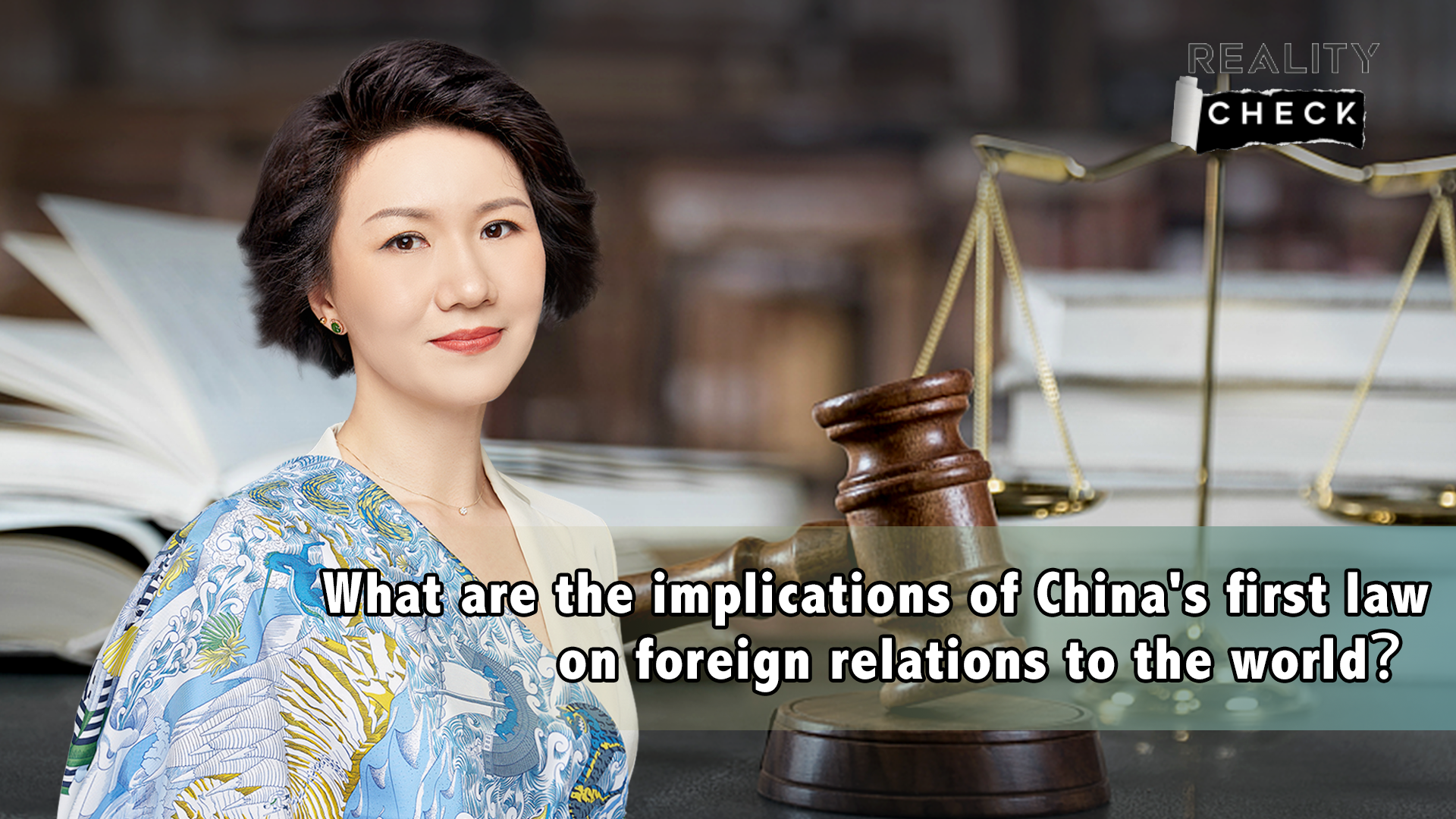China enacts its first foreign relations law, but some Western media label it as "assertive diplomacy." CGTN's Liu Xin talked to two guests from China and the U.S. about the dual aims of this foreign relations law & the overreaction of foreign presses.
02:43

Huo Zhengxin: This is a comprehensive law in foreign-related areas. And in this law, China tries to manifest its intention to the outside world: It tries to balance all these goals. On the one hand, China upholds the international system with the UN at its core and international order underpinned by international law. Therefore, China, in this law, manifests that it opposes unilateralism. On the other hand, China also says that it will strengthen its high-level development economy and will conduct an open-door policy and deepen its reform.
So, generally speaking, I think that this is the law that China tries to send a very clear signal to the outside world that China tries to uphold the international law and also safeguard its national interests by the rule of law.
James Nolt: I don't see any great departure from what's been going on so far with, for decades, the Chinese foreign policy. There are no surprises here. But it is useful to have a comprehensive statement in a single law of the institutions, the lines of authority, and the broad principles guiding foreign policy.
In many cases, China's measures, for example, during Trump's trade sanctions against China starting in 2018, China did impose countersanctions, but they tended to be less severe than the original sanctions that the United States had imposed. So, I think the fact that you have the right under international law, or in some instances, in domestic law, to respond doesn't necessarily mean that there aren't reasons for restraint because any action itself has consequences.
And so, the government has to carefully measure. Is the countersanction or the action by the government going to be so provocative that other states may react even more strongly and, therefore, jeopardize China's relations worse or create a downward spiral of tit-for-tat? China may indeed implement this in a cautious way, and I think to some extent, the foreign press is overreacting to this law. Because it seems to me that it restates things that have already been common practice.